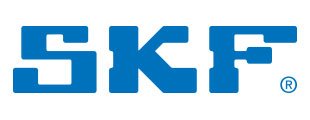SKF is urging users of rotating equipment to rethink the way they pay for bearings and related items.
In the traditional transaction-based model, suppliers’ profits depend on numbers of parts sold and not on improvements in machine performance. There’s fundamental conflict of interest, as longer component life means fewer sales for the supplier. SKF is now offering a forward-thinking, fee-based Rotating Equipment Performance (REP) service, in which both SKF as a supplier and its customers are benefiting from maximising machinery’s productivity, reliability and efficiency.
Under a REP contract, the customer pays a fixed monthly or quarterly fee dependent on SKF meeting agreed targets for machine production level, uptime or other KPIs. The all-inclusive fee covers provision of bearings, seals, lubrication and condition monitoring. SKF’s engineering expertise in this specialised area ensures the ideal specification and application of all elements, which is important as 90% of industrial bearings fail because they are wrongly specified, installed, lubricated or used.
REP can be applied to both long-established and modern equipment, including conveyor belts, pumps, crushers, paper machines, steel or pulp mills and railway bogies, to name but a few examples. SKF experts discuss the needs of the machinery and the business before proposing a solution. Importantly, REP helps bring the customer’s maintenance and production departments together, with a strong focus on uptime and output.
The scope for performance improvement through fee-based business models has been enhanced by digitalization. SKF can provide inexpensive, easy-to-use condition monitoring units and automatic, fully integrated lubrication systems. These connect with the SKF Cloud and the customer’s existing production management system to generate useful real-time data which can be acted upon remotely.
Entry-level hardware and software make it simple for any company to adopt a digital approach, and solutions are scalable to suit all sizes of operation. If businesses lack the analytical expertise to make use of the data generated, SKF can provide the necessary onsite or remote support. All systems are connected to SKF REP Centres, where data scientists and application engineers monitor 5 million bearings in real time.
“As well as reducing costs and increasing profitability, our REP fee-based approach reduces waste in the value chain and lowers environmental impacts,” says Alrik Danielson, SKF’s President and CEO. “REP contributes to the circular economy through remanufacturing or recycling of bearings, and filtration and regeneration of lubricants. It also lowers material and energy consumption more generally thanks to longer-lasting components and more efficient machine performance. This is all good news for the future of businesses and our planet.”



